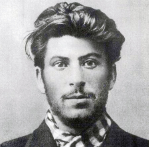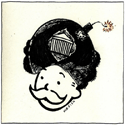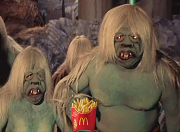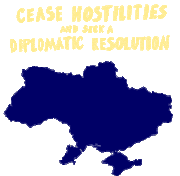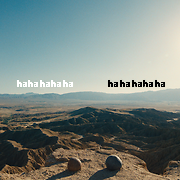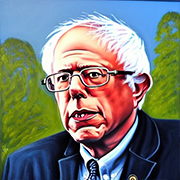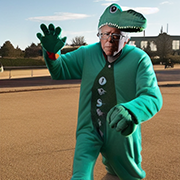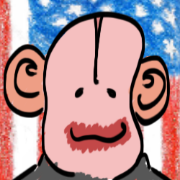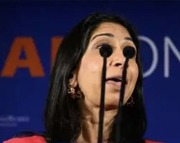|
The quataris 9/11ed the guy
|
|
|
|

|
| # ? Jun 8, 2024 12:26 |
|
The traitor rears its head… 🐍 https://twitter.com/newsaboutturke1/status/1602053674821378050
mawarannahr has issued a correction as of 21:07 on Dec 12, 2022 |
|
|
|
gulens right
|
|
|
|
https://twitter.com/AbiyAhmedAli/status/1602532870135988226?t=PBk_7X5h7H0uSrbwvZ4OCQ&s=19 I was sure Abiy invented this organization to give him an award, but it's actually a thing that existed before he arrived in DC.
|
|
|
|
https://twitter.com/kennardmatt/status/1602609357958553600?cxt=HHwWgICx7Yquzr0sAAAA
|
|
|
|
lobster shirt posted:gulens right Abraham and Jesus are Kurdish?
|
|
|
|
An exclusive CNN investigation has found that some Western governments who pledged to support LGBTQI+ rights have also funded supporters of a controversial bill in Ghana that could introduce harsh sentences for advocating for sexual and gender minorities' rights. In the five years up to 2021, at least $5 million in aid from Europe and the US went to projects run by or benefiting churches in Ghana whose leaders have backed this bill and have a long track-record of anti-LGBTQI+ statements and activities, according to CNN's analysis of financial data and communication with the donors. There is no indication the funding identified went to any explicitly anti-LGBTQI+ activities. However, these religious organizations are now pushing for the anti-LGBTQI+ bill, introduced last year and officially known as the Promotion of Proper Human Sexual Rights and Ghanaian Family Values Bill, to be made law. In one instance, CNN's analysis revealed that more than $140,000 of UK and US taxpayers' money in 2018-2020 went to the Christian Council of Ghana (CCG), an association of 29 churches and Christian organizations, which in 2020 said: "As we indicated in times past, our cultural norms and religious values as a nation do not support LGBTQ rights." During that same period, the UK became co-chair of the international Equal Rights Coalition to "protect the rights of lesbian, gay, bisexual, transgender, and intersex (LGBTI) people" and promote "inclusive development" worldwide. CNN's analysis also found that some other members of the Equal Rights Coalition -- the US, Germany, and Italy -- have funded projects by or for churches in Ghana that have similarly opposed LGBTQI+ rights before, during, and after they benefited from aid money. Human rights advocates called Western donors' funding practices exposed by CNN "surprising" and "inconsistent." "It's like stating you're going to go green and then funding the petrol industry," said Neil Datta, executive director of the European Parliamentary Forum on Sexual and Reproductive Rights. Donor agencies need to be "more aware that sexual and reproductive rights are contested issues", and make sure that "they are not inadvertently funding the organizations who are working against some of their other objectives," he said, calling for stricter "background checks" on potential grantees. "This reveals inconsistencies in the funding practices of major donors and implicates them as complicit in fostering homophobia and transphobia in Ghana," said Caroline Koussaiman, executive director of the Initiative Sankofa d'Afrique de l'Ouest (ISDAO), an activist-led fund supporting gender diversity and sexual rights in West Africa. "This is the antithesis of "do no harm" principles." "We need donors to support our struggles for liberation, and not directly or indirectly fund anti-gender movements which we know are extremely well resourced," she added. When presented with the findings of CNN's analysis, donors whose aid went to projects for or by religious organizations that oppose LGBTQI+ rights said that all such support stopped before the legislation was proposed, or that the funding was given under now-outdated guidelines. Details provided at the bottom of the story. Yet the CCG, the Catholic Bishops' Conference and other Christian and Muslim opponents of LGBTQI+ rights are reportedly members of the National Coalition for Proper Human Sexual Rights and Family Values -- an advocacy group founded in 2013, that has vocally pushed for such legislation for years. Its spokesperson, Moses Foh-Amoaning, in 2018 -- a period covered by the data CNN reviewed -- told local media that the coalition was working on "a comprehensive solution-based... legislative framework for addressing the LGBT problem." That same year, its members launched "a three-day fasting and prayer session against homosexuality", and reportedly organized a camp at an undisclosed location to "treat" and "cure" hundreds of gay people in Ghana. Also in 2018: £100,000 (about $130,000) of the UK taxpayers' money went to the CCG with a stated goal of fighting corruption in schools, according to details the UK published in the International Aid Transparency Initiative (IATI) data standard. This was a fraction of a large government fund to support civil society in Ghana, which was managed by a UK charity Christian Aid and that ended in 2020. (It is typical for development assistance to be disbursed by donor governments to for- and non-profit organizations which act as intermediaries, redistributing aid to their partners in recipient countries.) The US federal government sent more than $13,000 to the CCG in January 2020, IATI records show, for a project to provide shelters to refugees at Krisan Camp in southwestern Ghana. In addition, 208,000 euros (about $245,000) of German aid money went to the CCG between 2014 and 2018, via an intermediary called Brot für die Welt, a spokesperson for the German Ministry for Economic Cooperation and Development told CNN. Government funding ended in May 2018, but Brot für die Welt continued cooperation with the CCG for almost three more years -- until another anti-LGBTQI+ statement to the press in February 2021 that "clearly positioned the CCG against LGBTQI+", according to CNN's communication with the spokesperson. German as well as Italian aid also went to development projects run by or benefiting some individual CCG member churches that have spoken against LGBTQI+ rights, CNN has identified. Projects of Ghana's Methodist, Evangelical Presbyterian, and Presbyterian churches received at least $670,000 from these countries via intermediary religious NGOs between 2016 and 2020, according to the most recent available aid data from the Organization for Economic Cooperation and Development (OECD), corroborated by correspondence with the donor countries. During that same period, an Evangelical Presbyterian church's director told local media that his church would continue to be loud and clear in condemning "attempts...to encourage homosexuality". "No amount of aid promised by the developed world should make Ghana adopt that abominable act," he said. German Catholic intermediary NGO, Misereor, disclosed spending 2.8 million euros ($3.1 million) of German taxpayers' money on projects by the Catholic Church's partner organizations in Ghana between 2016 and 2020. This included $127,000 that was spent on a project with a broad goal of strengthening strategy and management standards for the churches' development work. Aid benefiting Ghana's Catholic Church also included $850,000 from the US. Between 2019 and 2020 this money went to Ghanaian and US contractors for a project whose goal was to transition several dioceses of the Church to solar power, as confirmed by the US Trade and Development Agency (USTDA). Yet, during that period, the Ghana Catholic Bishops' Conference issued a joint statement with the CCG opposing same-sex unions. In 2019, the president of the Ghana Catholic Bishops' Conference called being LGBTQI+ "a lifestyle that is against universal natural values and, certainly, against Ghanaian cultural and moral values." He urged the country's president to block the introduction of "evil agenda" in schools, meaning comprehensive sex education including teachings about LGBTQI+ rights. CNN attempted to reach Ghana Catholic Bishops Conference several times for the written story and received no response. To the request for television interview, CNN was informed that "the President is the official spokesperson of the Conference," but that he would "not be available to grant the interview." The CCG and none of the churches in this story responded to CNN's multiple requests for comment. The spokesperson for the National Coalition for Proper Human Sexual Rights and Family Values, Foh-Amoaning, also declined to answer questions. Criminalizing same-sex relationships in Ghana Same-sex relationships were first criminalized in Ghana in the 19th century under British colonial rule. In 2018, the UK prime minister at the time, Theresa May, apologized for such laws, saying "they were wrong then, and they are wrong now." In 1960, homosexual acts were made illegal in Ghana's first, post-independence criminal code, which replaced colonial-era laws but was still influenced by them. This part of the law, however, was rarely enforced. In its current form, the new bill, brought forth by eight MPs in July 2021, proposes to criminalize not only same-sex sexual relationships and marriages but also identifying as LGBTQI+, promoting and funding of LGBTQI+ groups, and public debate or education on sexual orientation and gender identity. In addition, if the bill were to pass, it would impose medical "assistance" on persons questioning their sexuality, and on intersex children. The bill drew sharp local and international criticism. Soon after it came before Ghana's parliament, UN human rights experts called it "a recipe for conflict and violence" that would mandate "deeply harmful practices that amount to ill-treatment and are conducive to torture", including "corrective rape" for women. A global LGBTQI+ rights group OutRight Action International recently warned that the bill "goes much further" than any anti-LGBTQI+ law "anywhere in the world." The organization said the bill has "contributed to an increasingly hostile climate" and cited "mob attacks, physical violence, arbitrary arrests, blackmail and online harassment, verbal harassment, gang rape" and other abuses reported by LGBTQI+ Ghanaians. Leila Yahaya, executive director of queer Muslim organization, One Love Sisters Ghana, told CNN how police raided the paralegal training session her group had organized for activists in the city of Ho, leading to the arrest of 21 people, including herself. The activists were charged with unlawful assembly and detained for over three weeks, until the case was dismissed for lack of evidence. Many of those arrested lost their jobs and were ostracized by family members as a result, said Yahaya who received a death threat and was told she needed "a real man" in her life on social media. "I didn't talk to anybody for more than six months. I was still in my shell trying to recover and pick up the pieces of my life," she said. Yahaya told CNN she felt the introduction of the anti-LGBTQI+ bill was "trying to erase" her "whole existence as a human being." "Your whole life is full of question marks. What if it's passed? What if it's not?" Yahaya said, adding she particularly fears for fellow queer people who may not know their rights as citizens or how to keep themselves safe. Another LGBTQI+ activist who received threats for his work is Abdul-Wadud Mohammed, communications director at LGBT+ Rights Ghana. In January 2021, his organization had opened an LGBTQI+ community center in Accra but after just a month in operation it was raided by Ghanaian security forces and shut down following calls from religious leaders, including the CCG and Catholic bishops, for this to happen. Mohammed said he had to go into hiding for several months to avoid persecution, moving from one house to another with a group of fellow activists until he moved abroad to study. While Ghana is a nominally secular country, faith-based organizations wield significant influence on life and politics. With about 71% of Ghana's population identifying as Christian, churches are "in every village," so international development and humanitarian organizations have long recognized the need to work with religious groups. Ghana's president Nana Akufo-Addo himself acknowledged in a 2018 speech that "the church can be very influential in Ghana" -- he then sought to reassure church leaders that his office had "no authority" to allow same-sex marriages. We must acknowledge that "over the years, many mission churches and African indigenous churches have been involved in development work, such as building primary schools, developing wells, formal and informal education, hospitals and clinics," professor of gender studies and African studies at the University of Ghana, Akosua Adomako Ampofo, told CNN. She added that while it is not fair to paint all churches with a broad brush, some have adopted a more restricted understanding of gender and sexuality, which she sees as problematic. "Within churches, some people's understanding of the Gospel seems to have led them to believe that if there is a disagreement between the way they understand Christianity and other people's lives then they have the right to impose their view because they see that as the right view." LGBT+ Rights Ghana communications director Mohammed echoed this view, telling CNN: "I understand why they [churches] are getting this money. Donors expect results -- and one of the entities that can show results is the church because they are seen as people that are helping the community." "It becomes disturbing when this very same aid can be used [indirectly] against marginalized communities," Mohammed added. 'I'm mad because these churches are not hiding the fact that they are homophobic' Asibi (a pseudonym is used to protect her identity) has experienced firsthand the "increasingly hostile climate" members of Ghana's LGBTQI+ community face. She had been volunteering to help set up the LGBTQI+ community center in Accra before it was raided. Local TV channels broadcast videos from the center's YouTube page, and Asibi believes that visibility put her at risk. According to the 25-year-old, she suspects that a family member took screenshots of her social media accounts -- which she used to connect with the queer community -- and shared them with other family members. Some relatives then called her mother. At this point, Asibi, who is estranged from her family, began to worry. One night in her studio flat, she thought that she could hear someone trying to open a window from the outside. The next day, a neighbor told her that a man -- who she suspects was a family member -- had come by with four others. Asibi immediately went inside, packed a bag, and left her neighborhood. She stayed with different friends for months, until she got a visa and fled the country. There are many others with stories of intimidation or violence who didn't want to go on the record. And yet, churches continue to push for harsher treatment by the law. Earlier this year, for example, a Presbyterian Church representative reportedly told a parliamentary hearing on the bill that the current criminal code is inadequate and called for a minimum of three years in jail for "any offense committed under the bill" to serve as deterrent "for people who harbor similar intent." "I am mad because these churches are not hiding the fact that they are homophobic," Asibi told CNN. "I don't get the justification for funding churches. It further erodes my trust that these international bodies are truly interested in safeguarding the rights of marginalized groups in Ghana." What Western donors had to say When presented with CNN's findings, a spokesperson for Germany's Federal Ministry for Economic Cooperation and Development (BMZ) told CNN that the country is aware of "the human rights situation of LGBTQI+ persons in Ghana'' and that its intermediary NGOs do not support any projects which endanger the rights of LGBTQI+ communities. These intermediaries, the spokesperson added, are now "seeking to distance themselves from statements made and opinions expressed by the Christian Council of Ghana [CCG]." However, CNN learned that the NGO intermediary, Brot für die Welt, continues to support projects run by individual CCG members. Those projects are: a three-year grant worth €320,00 for the Methodist Agricultural Program, approved in 2021; a vocational training program by the Presbyterian Church of Ghana which received €460,000 last year; and a three-year €295,000 grant for a health education project by The Salvation Army. For its part, German intermediary organization, Misereor, continues to use public money to support projects run by or benefitting the Catholic Church in Ghana. A spokesperson for Brot für die Welt told CNN the organization "strives to engage in constant dialog with local churches" on human rights. "BfdW is aware of some churches conservative and outdated attitude and very much concerned about the discriminating actions in which it sometimes manifests itself," the spokesperson said. "Misereor does not support projects that oppose LGBTQ rights in Ghana," its spokesperson said. "In our internal dialogue with actors in the Church of Ghana, we raise the issue and call for the indiscriminate observance of human rights for all people." "Major donors complicit in fostering homophobia and transphobia in Ghana'" Italy's Ministry of Foreign Affairs and International Cooperation told CNN it "is not responsible for the use of these [identified] funds", saying they go directly from people's taxes to different religious organizations that distribute the money for development work. The two religious institutions the ministry said sent some of this money to Ghanaian churches, Conferenza Episcopale Italiana and Tavola Valdese, did not respond to CNN's requests for comment. The US Trade and Development Agency, which allocated funds to the solar power project benefiting the Catholic church in 2019 and 2020, said: "Legislative and executive branch regulations in place at the time of USTDA's grant activity would not have prohibited funding by reason of the statements [opposing LGBTQI+ rights] that you provided." "We urge Ghana to uphold constitutional protections and to adhere to Ghana's international human rights obligations and commitments with regard to all individuals, including members of the LGBTQI+ community," said a spokesperson for the US State Department, which is the agency accountable for the grant the US provided to the CCG. "US government assistance is intended to improve the lives of all Ghanaians, without discrimination." A spokesperson for the UK Foreign, Commonwealth and Development Office (FCDO, formerly Department for International Development) told CNN: "The UK has long been at the forefront of promoting LGBT+ rights internationally and we have regularly raised our concerns about the Family Values Bill with the Ghanaian authorities." A spokesperson for Christian Aid, the charity that managed UK aid to the CCG, said it is no longer active in Ghana, adding it "takes seriously" its work to promote equality and helps tackle discrimination against LGBTQI+ communities in various countries. Earlier this year, the UK acknowledged human rights abuses toward gender and sexual minorities in Ghana in a detailed report on the matter for Home Office decision-makers evaluating related asylum claims. If the proposed bill passes, many LGBTQI+ Ghanaians and their allies would be left with no choice but to try and flee the country.
|
|
|
|
https://twitter.com/thedailybeast/status/1602730080056344577 Ouphf i was wrong
|
|
|
|
They got to his brother too
|
|
|
|
Some Guy TT posted:An exclusive CNN investigation has found that some Western governments who pledged to support LGBTQI+ rights have also funded supporters of a controversial bill in Ghana that could introduce harsh sentences for advocating for sexual and gender minorities' rights. drat,
|
|
|
quote:"It's like stating you're going to go green and then funding the petrol industry," said Neil Datta, executive director of the European Parliamentary Forum on Sexual and Reproductive Rights. ah, yeah, who would ever do that
|
|
|
|
|
https://twitter.com/DailySabah/status/1603041842190323712
|
|
|
|
Do not taunt the thread raters. User loses mayoral privileges for 2 years and 7 months.
|
|
|
|
it’s wild lmao. It’s for calling the election board idiots for loving up an election that had to be redone (the real reason it got hosed up is AKP). man why I gotta be stuck between the two stupidest countries, Turkey and America.
|
|
|
|
mawarannahr posted:it’s wild lmao. It’s for calling the election board idiots for loving up an election that had to be redone (the real reason it got hosed up is AKP). man why I gotta be stuck between the two stupidest countries, Turkey and America. I've been watching The Protector on netflix. Is it popular over there or just in the US?
|
|
|
|
Plutonis posted:Abraham and Jesus are Kurdish? Yes. Problem? https://twitter.com/ragipsoylu/status/1603044258650406914
|
|
|
|
interesting that turkey's runaway inflation pretty much stopped about ten weeks ago
|
|
|
|
Head of PP met Blinken https://twitter.com/AbiyAhmedAli/status/1602883411135414273?t=z1kmTQLuxXb4VcECpyDUfg&s=19
|
|
|
|
Some Guy TT posted:An exclusive CNN investigation has found that some Western governments who pledged to support LGBTQI+ rights have also funded supporters of a controversial bill in Ghana that could introduce harsh sentences for advocating for sexual and gender minorities' rights.
|
|
|
|
was it oil or gold that ghana discovered recently
|
|
|
|
man I wish Some Guy TT was still posting, at least he’d have the goddamn common decency to just post a twitter link
|
|
|
|
Ethiopia is an example for the world to follow!
|
|
|
|
Nonsense posted:Ethiopia is an example for the world to follow!  
|
|
|
|
Last French troops leave Central African Republic So ends the seventh French military intervention to the CAR since 1960. As with Mali, relations between France and the Central African Republic has been in decline since 2018 when the CAR turned to Russia for military support. quote:"It is with great regret that we note this unilateral withdrawal," said Fidele Gouandjika, special adviser to President Touadera.
|
|
|
|
Danann posted:was it oil or gold that ghana discovered recently I thought it was an influx of wealth from immigrating middle class black americans wanting to live somewhere where being black isn't a capital crime
|
|
|
|
The Voice of Labor posted:I thought it was an influx of wealth from immigrating middle class black americans wanting to live somewhere where being black isn't a capital crime that's a thing? edit the immigration part, not the last part
|
|
|
|
Comrade Koba posted:man I wish Some Guy TT was still posting, at least he’d have the goddamn common decency to just post a twitter link One of Iran’s best-known actresses has been arrested days after she criticized the execution of a man who was involved in the nationwide protests that have swept the country since September. Taraneh Alidoosti, who starred in the 2016 Oscar-winning film, “The Salesman,” had condemned the hanging of Mohsen Shekari, who was killed this month in the first known execution linked to the protests. Shekari was reportedly convicted of “waging war against God” for stabbing a member of the Basij paramilitary force at a protest in Tehran on September 23. State media outlet Fars News Agency, which is affiliated with the Islamic Revolutionary Guards, said Alidoosti had been arrested because there was a “lack of evidence for her claims.” Known as a feminist activist, Alidoosti last month published a picture of herself on Instagram without the Islamic hijab and holding a sign reading “Women, Life, Freedom” to show support for the protest movement. After Shekari’s execution, she said in another post: “Your silence means supporting tyranny and tyrants,” adding that “every international organization who is watching this bloodshed and not taking action, is a disgrace to humanity.” Her Instagram account has since been deleted. Days after Shekari was hanged, a second execution took place on December 12. Majidreza Rahnavard was hanged in the northeastern city of Mashhad after he was accused of killing two paramilitary officers. “Some celebrities make claims without evidence and publish provocations and have been thus arrested,” Far News Agency said in its report on Alidoosti. Local rights group, Committee to Counter Violence Against Women in Iranian Cinema, said on Twitter that it wasn’t clear which government department had taken Alidoosti into custody. Alidoosti, who has appeared in various popular Iranian TV shows, is known for her activism in the MeToo movement in Iran’s cinema industry. Last month, she denied reports that she had left Iran, writing that she planned to stay in the country and stop working. “I will stand by the families of prisoners and the killed and will demand justice for them. I will fight for my home and I will pay any cost to stand for my rights,” she wrote. Several Iranians have been sentenced to death by execution during the nationwide protests, which were sparked by the death of 22-year-old Mahsa Amini after she was apprehended by the state’s morality police for allegedly not wearing her hijab properly. Her death touched a nerve in the Islamic Republic, with prominent public figures coming out in support of the movement. The protests have since coalesced around a range of grievances with the authoritarian regime. According to Amnesty International, as of November, Iranian authorities were seeking the death penalty for at least 21 people in connection with the protests. At least 458 people have been killed in the unrest since September, according to Norway-based Iran Human Rights on Wednesday. CNN cannot independently verify the number of people facing executions in Iran, or the latest arrest figures or death tolls related to the protests, as precise figures are impossible for anyone outside the Iranian government to confirm.
|
|
|
|
i say swears online posted:that's a thing? I think it's being pitched as a thing. the youtube algorithm got all excited about the subject when I was looking up stuff about ghana because it is coastal, subtropical and de jure english language. if a country needs to import skilled labor and small amounts of capital, "cops here won't shoot you because you're black" seems like a pretty good enticement to put out. there's no shortage of articles like this: https://www.thrillist.com/travel/nation/living-in-ghana-guide looking at the number of american expats though, it's less than 3k
|
|
|
|
yeah it's not a thing. admittedly it's been a decade but i never once met a black american in west africa. however, the nigerian middle class was extremely aware of "black american culture" and thought it was demonic and a bad example
|
|
|
|
The Voice of Labor posted:I think it's being pitched as a thing. the youtube algorithm got all excited about the subject when I was looking up stuff about ghana because it is coastal, subtropical and de jure english language. if a country needs to import skilled labor and small amounts of capital, "cops here won't shoot you because you're black" seems like a pretty good enticement to put out. there's no shortage of articles like this: Yeah, it seems to be a pretty small number and I think some youtube channels hype it up a bit. That said, there is certainly some interesting development going on, Ghana is developing its own domestic chocolate industry (it is one of the largest exporters of cocoa) which is interesting). Neverthless, Ghana is in the orbit of the US which is probably going to slow its development.
|
|
|
|
ghana was among the big group of african signees to the BRI in 2018 so iunno how true that is no matter how conservative the politics are
|
|
|
|
i say swears online posted:yeah it's not a thing. admittedly it's been a decade but i never once met a black american in west africa. however, the nigerian middle class was extremely aware of "black american culture" and thought it was demonic and a bad example yeah quite a few of the upper class Nigerians who come to Canada make a point of being Not Like Us which is funny when they go to like African Canadian events and just start saying Herschel Walker level "we blacks need to work harder" poo poo
|
|
|
|
https://twitter.com/VanessaBeeley/status/1604444320978837504?t=1-LBcuhW9zOOO7Zv9avoCg&s=19 This brought a smile to my face. So wholesome.
|
|
|
|
i say swears online posted:yeah it's not a thing. admittedly it's been a decade but i never once met a black american in west africa. however, the nigerian middle class was extremely aware of "black american culture" and thought it was demonic and a bad example From Twitter I noticed there's a lot of mutual contempt between English speaking africans and black americans. Legit saw a post where one of the former said "We sold you to the white man for a reason". 
|
|
|
|
Plutonis posted:From Twitter I noticed there's a lot of mutual contempt between English speaking africans and black americans. Legit saw a post where one of the former said "We sold you to the white man for a reason". 
|
|
|
|
Plutonis posted:From Twitter I noticed there's a lot of mutual contempt between English speaking africans and black americans. Legit saw a post where one of the former said "We sold you to the white man for a reason". yeah it's common. like if booker t washington attended joel osteen services
|
|
|
|
yeah the amount of racism ive seen from african immigrants (and to a lesser extent from their first gen american children) against black americans is astonishing
|
|
|
|
https://twitter.com/nyeusi_waasi/status/1603837132447141889?cxt=HHwWgsC-0fvX_MEsAAAA Are there any articles about this? I googled and couldn't find the specifics.
|
|
|
|
https://www.state.gov/secretary-bli...stanley-kakubo/ from that video above with a bit of the beginning that the video cut, whole transcript at link quote:SECRETARY BLINKEN: Well, good afternoon, everyone. I am extremely pleased to be joined by Congolese President Tshisekedi, with my friend the foreign minister as well – very good to see you – and the president of Zambia, Hichilema, with our – also my colleague here today. We have as well the minister of commerce from both – from Zambia, the vice prime minister from the DRC, and the Under Secretary of State for Economic Growth Jose Fernandez, all with us today to sign or witness the signing of a memorandum of understanding in which the U.S. will support the DRC and Zambia in developing an electric vehicle value chain. Bloomberg article from seven months ago with some foreshadowing quote:Straddling the border of Zambia and the Democratic Republic of Congo, a vast forested area roughly the size of Portugal contains one of the world’s richest caches of minerals: copper for wires and cables, and cobalt for rechargeable batteries. Reuters 72 hours ago quote:California-based exploration firm KoBold Metals, which uses artificial intelligence and machine learning to identify battery metal deposits, is investing $150 million to develop a copper mine in Zambia, the company announced at the U.S.-Africa Leaders Summit in Washington, D.C. https://www.gisreportsonline.com/r/zambia-debt/ quote:In 2021, Zambia became the first country to default on its external debt in the aftermath of the Covid-19 pandemic. The country is no stranger to out-of-control debt. In the early 1990s, following years of economic mismanagement and a global slump in the price of commodities, Zambia went into economic collapse and had to rely on International Monetary Fund (IMF) loans. The ensuing economic restructuring was a painful process. sensing...some sort of narrative... i say swears online has issued a correction as of 21:00 on Dec 18, 2022 |
|
|
|

|
| # ? Jun 8, 2024 12:26 |
|
lobster shirt posted:yeah the amount of racism ive seen from african immigrants (and to a lesser extent from their first gen american children) against black americans is astonishing https://m.youtube.com/watch?v=WOnHL_mSXRY it’s a two way street, I remember every African kid getting hit with starvin Marvin for a few years after that stupid SP episode aired too
|
|
|







